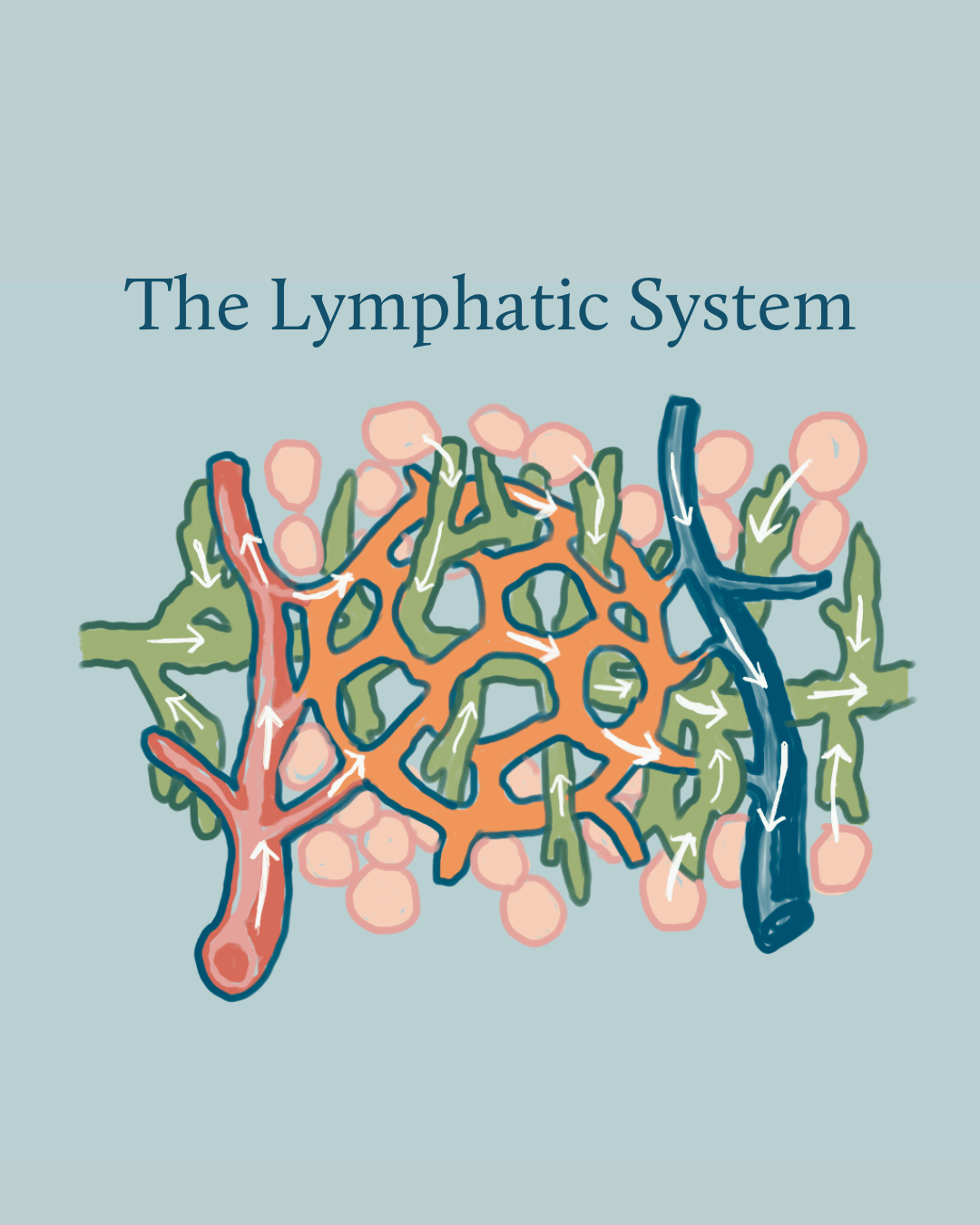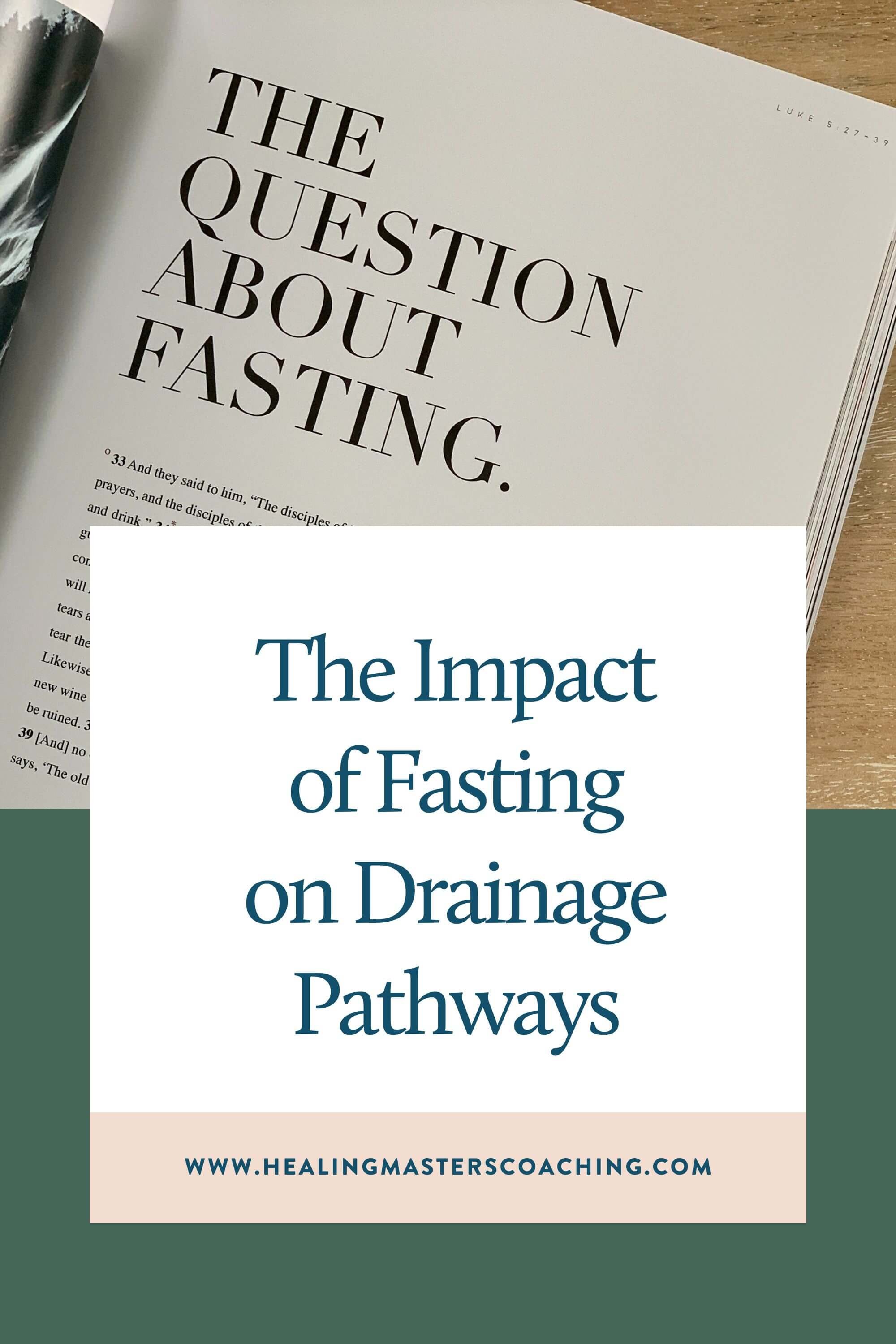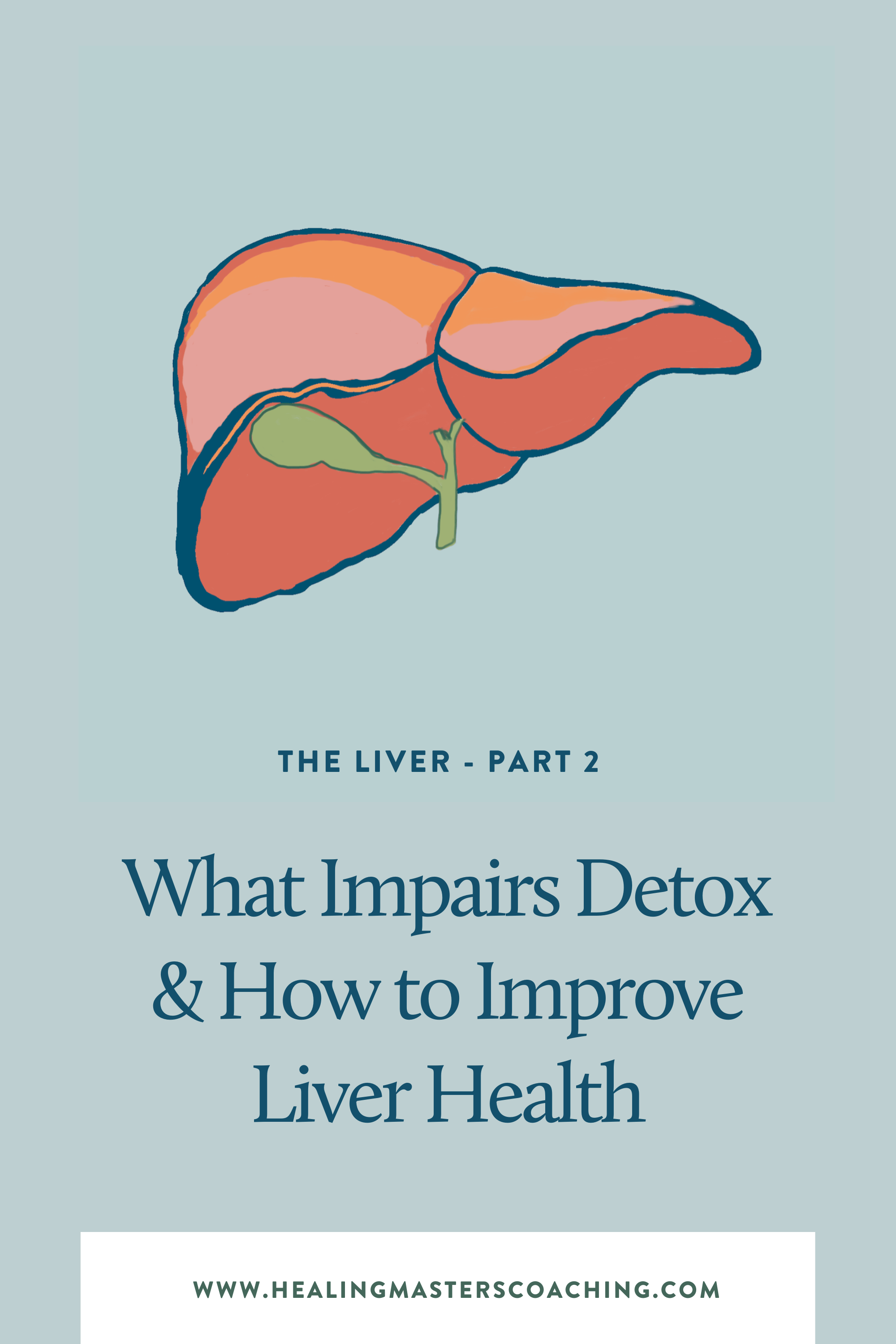The Liver - Part 2: What Impairs Detox & How to Improve Liver Health
This is the fourth post in the drainage series. In previous blogs, I covered the body’s drainage pathways, the colon, and part 1 of the liver. Part 1 discusses the liver’s important functions and the phases of detoxification. This article will cover what can cause impair detoxification, and how to heal and support detox.
What Impairs Detox?
The blood collected from your gut goes to the liver first, which can be high in toxins if your gut is leaky. The liver acts like a shield for your other organs and works to reduce the number of toxins that reach your other organs, like the brain and heart. Genetic factors and toxin burden can impact the liver’s ability to detox, as well as age. The ability to detox starts to decline in your 40s. A common genetic mutation that impacts phase 2 detox (methylation) is the MTHFR gene. Methylation helps clear histamine, which is super important for those struggling with mast cell disorders. Chronic inflammation, infection, and parasites like liver flukes can also get in the way of detox as they lower the levels of liver enzymes.
What are the Symptoms of a Damaged Liver?
It is becoming increasingly common for people to have liver disease, fatty liver, or other liver-related health problems. Fatty liver happens when fat builds up in the liver. Having small amounts of fat in the liver is normal, but excessive amounts create problems because it causes inflammation. If left unaddressed, this can lead to liver damage and scarring, and in severe cases liver failure. If this develops in someone who drinks a lot of alcohol, it is called alcoholic fatty liver disease. There is also nonalcoholic fatty liver disease which is estimated to affect up to 25% of the population of people living in the United States and Europe. The most common symptoms include feeling tired or feeling pain or discomfort in the upper right side of your abdomen. Liver scarring is known as liver fibrosis, and in severe cases, cirrhosis, which can be life threatening and cause total liver failure.
Here are several symptoms to watch out for that could be pointing to a stressed liver. These include:
Abdominal pain
Abdominal bloating
Chronic fatigue
Easy bruising and bleeding
Hyper-pigmentation
Itchy skin
Loss of appetite
Nausea
Spider veins
Vomiting
Weight gain
Yellow skin or eyes
Dark circles/bags underneath eyes
What Causes Fatty Liver Disease?
Excess fat gets stored in liver cells, where it can accumulate and cause fat buildup. Excess alcohol use (more than 8 drinks per week for women and more than 15 drinks per week for men) can alter metabolic processes in the liver, which can cause the accumulation of fat in the liver. For those who don’t drink alcohol, it also can be caused by the body producing too much fat, or the body not being able to metabolize fat efficiently. Nonalcoholic fatty liver disease is associated with obesity, type 2 diabetes, insulin resistance, high levels of fat (triglycerides) in the blood, and metabolic syndrome.
Some medications, infections (viruses & parasites), and rare genetic conditions can also cause a fatty liver and liver damage. Risk factors for nonalcoholic fatty liver disease include older age, certain medications, exposure to certain toxins, rapid weight loss, obstructive sleep apnea, and parasitic infections. Luckily fatty liver can be reversed through lifestyle changes and addressing the root cause of the damage.
How Do You Assess the Health of Your Liver?
You can tell from a blood test if you have signs of liver inflammation and damage by looking for elevated liver enzymes. These markers are included in our Healing Masters Functional Blood Chemistry Analysis Lab Panels and are commonly found on Comprehensive Metabolic Panels ran at your doctor’s visit. These lab tests measure the amounts of proteins, liver enzymes, and bilirubin in the blood. Typically, two liver enzymes, alanine aminotransferase (ALT) and aspartate aminotransferase (AST) are monitored.
If these liver function panels are elevated, the liver will likely need additional support to improve its function. We offer testing and Functional Blood Chemistry Analysis reports to assess liver health and function at Healing Masters. If you are interested in discovering your liver's state of health, you can contact us for a free twenty-minute phone or video call to learn more about your options. For more information on why testing is a crucial step in rebalancing the body check out How Functional Blood Chemistry Analysis (FBCA) can Change Your Health.
How to Improve Your Liver Health
One of the best things to help the liver heal is to limit or reduce the intake of toxins that go into your body in the first place. Simply put, the less toxins that come into your body, the less work your liver will need to do to process them out of the body. This can be accomplished by filtering your indoor air with a high-quality multi-stage HEPA air filtration system, drinking filtered or spring water, eating a whole foods diet (preferably organically sourced), sourcing animal products that are grass fed, pastured, wild caught, or organic, swapping household cleaning and personal care products for lower toxin choices, not using pesticides and insecticides in the home or garden, remediating mold in your home, and avoiding alcohol and cigarettes.
If you have a healthy liver that functions optimally, there is no need to avoid certain foods and beverages strictly. However, for those experiencing less than optimal liver health or even liver disease, being more strict in your avoidance will be necessary. You will want to eat an organic whole food diet eliminating processed foods, sugars, and preservatives. This will also help restore proper GI function and balance your pH, which will assist with better elimination of toxins in the third phase of detox. You can learn more information on the importance of pH and why eating an alkaline diet is so important by referring to Could a pH Imbalance Explain Your Symptoms or 7 Ways to Make Your Diet More Alkaline.
Another important thing to help liver health and keep it functioning optimally is eliminating alcohol or significantly limiting it to special occasions. Alcohol is a poison to the body, and it not only directly damages the stomach and liver but also impacts the brain. Chronic alcohol use also depletes your body of crucial vitamins and minerals needed for proper detoxification, cell function, and repair. It can strip the body of zinc, iron, magnesium, and vitamins A, C, D, E, K, and almost all B vitamins – all of which are needed in adequate quantities for phases 1 and 2 detox. This is why we focus on nutrition and supplementation of vitamins and minerals during our protocols.
There are beneficial supplements that can be taken safely without risk to the liver, in fact they support the liver to function more optimally and repair itself. They are:
Milk thistle extract (Silymarin) — this antioxidant rich plant has been used as medicine for over 2,000 years. Silymarin helps regenerate and maintain high levels of glutathione, which helps the liver detoxify itself better by reducing inflammation. It helps protect cells from future damage. There is research to suggest taking silymarin before being exposed to several harmful toxins (like alcohol and prescription drugs) prevented liver damage, and that silymarin can even regenerate damaged liver cells!
N-acetyl cysteine (NAC) – this is a powerful amino acid and common nutritional supplement that has been shown to improve liver function in several studies. NAC is also the precursor to Glutathione, a powerful antioxidant and detoxifying antioxidant. This means NAC helps your body make glutathione. It can also improve liver function in patients with nonalcoholic fatty liver disease. It also has health benefits for your brain, kidneys, and lungs, and is shown to improve autoimmune disorders.
When tolerated or not contradicted, we recommend CellCore Biosciences' supplement KL Support in our practice. It utilizes a unique blend of natural ingredients, including beetroot, Collinsonia root, gynostemma, milk thistle, NAC, parsley, and marshmallow root and supports healthy kidney and liver function. CellCore Biosciences' Advanced TUDCA is another product containing NAC that supports increased bile production (where toxins are dumped into for elimination), amongst numerous other positive health impacts. Please contact us to see if these products are a good fit for you.
Related Posts:
A Simple Intro To Drainage Pathways: The First Step In Detox
A Simple Intro to Drainage Pathways: The Colon
Overcome Your Chronic Symptoms & Heal Holistically
Are you looking to get to the root cause of your symptoms? We can help you.
We use holistic approaches and functional medicine lab testing to investigate what is triggering your chronic symptoms so you can address them at their source and start to feel better faster. Our health coaches are masters at guiding the healing of multiple root causes in a personalized order that gets you wellness results that last. We also help you maintain good health and minimize your disease risks.
by sarah southerton
Certified Integrative Health Practitioner (IHP2) & Functional Medicine Health Coach
Sarah helps clients overcome gut, hormone, and immune dysfunction by addressing the root causes across the physical, emotional, and energetic layers of healing—restoring balance from the inside out. Her holistic yet science-backed approach blends functional lab testing, detoxification, and emotional healing to create lasting transformation. Once a chronic illness warrior herself, Sarah now leads Healing Masters as an integrative practitioner and wellness educator, helping others get unstuck, restore energy, heal deeply, and feel whole again.
Disclaimer: The information on this website is for general information purposes only. Nothing on this site should be taken as healthcare advice for any individual case or situation. This information is not intended to create, and receipt or viewing does not constitute, an healthcare professional-patient relationship. We do our best to keep information accurate and up to date, however mistakes do happen, and we cannot make guarantees regarding the accuracy of our information. We are not liable for any information on this website or your reliance upon it.















